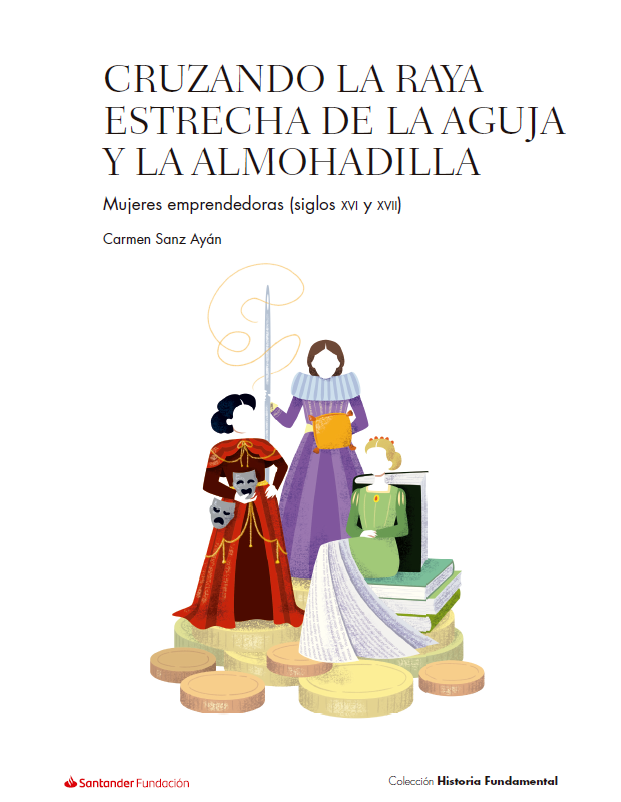At the height of its power, and contrary to popular belief, the Hispanic Monarchy unveiled to a numerous group of women who made their way into the world of business and enterprise, breaking the norm but not the law, which made them pioneering women.
Historian Carmen Sanz Ayán offers us an essay that analyses the education and status of women in that period, revealing their educational context and their socio-economic and religious circumstances. Additionally, she uncovers the life and work of numerous, hitherto unknown, enterprising women throughout the nations of the Habsburg Empire and Hispanic America itself.
Women dedicated to commerce, finance, theatre, the book industry and engraving are featured in this volume, which illuminates characters such as the businesswoman and actress María Bezón, one of the most acclaimed women of her time; the financier Casandra Grimaldo; the writer and publisher Isabel de Liaño, or the booksellers María de Armenteros and María del Ribero, among many other enterprising women who populate these pages.
All of them, sometimes out of necessity and sometimes by choice, decided to take the reins of the business activities they had known from within, either as daughters, wives or widows, until they achieved individual recognition for their work.
Carmen Sanz is Professor of Modern History at the Complutense University of Madrid, full member of the Royal Academy of History and winner of the 2014 National History Prize for her book Los banqueros y la crisis de la Monarquía Hispánica (Bankers and the Crisis of the Hispanic Monarchy). For more than a decade she has directed the NOBINCIS and HERMESP groups of excellence, whose main lines of research are oriented both to the study of the financial networks that operated in Europe and America during the Modern Age and to the socioeconomic aspects of the theatre of the Golden Age and the Baroque festival. As a result of her academic work, she has published some fifteen books and nearly two hundred articles.


